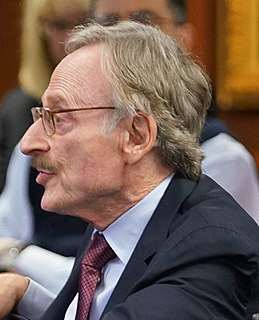A Quote by Stephen A. Schwarzman
In a financial crisis, only the Fed, as the lender of last resort, might stand between our economy and financial catastrophe. We must leave the Fed with the flexibility to provide liquidity in order to stop a financial panic.
Related Quotes
The Fed contributed to the financial crisis, keeping interest rates too low for too long. I give them credit for responding and stabilizing the economy and the financial sector during the crisis. But then they tried to do too much with quantitative easing that went on forever, just dramatically exploding their balance sheets.
To restore confidence in our markets and our financial institutions so they can fuel continued growth and prosperity, we must address the underlying problem. The federal government must implement a program to remove these illiquid assets that are weighing down our financial institutions and threatening our economy.
Anyone interested in the past, present, or future of banking and financial crises should read The Bankers' New Clothes. Admati and Hellwig provide a forceful and accessible analysis of the recent financial crisis and offer proposals to prevent future financial failures. While controversial, these proposals--whether you agree or disagree with them--will force you to think through the problems and solutions.
The Fed has a lot of power in the economy because it has a big impact on the supply and cost of credit, that is, interest rates. It also plays a key role in supervising banks and historically has seemed to take it easy on the banks when it shouldn't have, such as in the lead up to the financial crisis.

































